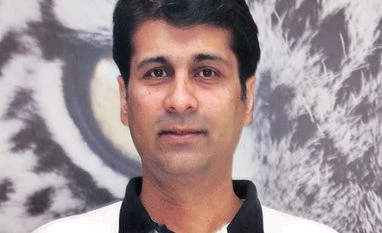After a ban on new diesel vehicle purchases was brought into effect, there are apprehensions over bringing some growth restriction on two-wheelers too. Delhi-based Centre for Science and Environment (CSE), which has welcomed the ban on new diesel car sales in the country's capital, has also advocated launching policies that will restrict growth of two-wheelers in cities. In an e-mail conversation with Swaraj Baggonkar, Managing Director of Bajaj Auto Rajiv Bajaj said arbitrary restrictions will never be effective.
As a two-wheeler manufacturer how do you view the latest developments?
Carl Jung said, ‘What we reject in our lives appears in the world as an event’. (The) Government and industry has compromised the environment for long, now we are experiencing the inevitable consequences.
Indian two- and three-wheeler emission regulations are virtually the tightest in the world, which is why what Bajaj makes for India it can sell across the globe, including in the US, Europe and Japan. We are proud that our engineers are world class.
What impact will there be if there are restriction imposed on two-wheeler sales?
Arbitrary restrictions sans a holistic approach will be neither effective nor sustainable. What’s needed first is world class mass transportation solutions that offer people a suitable alternative to personal transportation. Unfortunately, while we have developed world class motorcycles, past governments haven’t developed world class infrastructure.
Are electric bikes or cars the solution?
Such discontinuous technologies represent a promising direction for the future, not an immediate solution for tomorrow. While we all work to enlarge their role in the solution, we have to simultaneously work with what we have today.
There have been tremendous advancements in diesel technology over the last decade. Despite meeting the emission norms laid down by the government, companies are apprehensive about a blanket ban on diesel vehicles extended to the rest of the country. What message do companies derive from this?
All fuels have their pros and cons. The issue to me isn't about diesel vs petrol, rather it is that while Indian two- and three-wheelers have the tightest emission standards in the world, Indian cars are up to 10 years behind global emission standards. Car makers resist higher standards quoting constraints such as product technology, fuel quality, supplier incapability and cost infeasibility. But I fail to understand how these issues trouble them but not us. I believe that just as the government has ensured that the bike sold in Delhi is as green as that sold in Dubai, Dusseldorf and Detroit it must equally ensure that the cars that are sold across India are no inferior to those sold worldwide.
Is this sending a wrong signal to manufacturing companies?
On the contrary, spare the rod and spoil the child. VW (Volkswagen) may be the first errant car maker but unless governments act decisively it won't be the last.
What is your take on this?
Let us all address this matter in the spirit of what someone said..we don't inherit our world from our ancestors, we borrow it from our children.
As a two-wheeler manufacturer how do you view the latest developments?
Carl Jung said, ‘What we reject in our lives appears in the world as an event’. (The) Government and industry has compromised the environment for long, now we are experiencing the inevitable consequences.
More From This Section
What is your view on two-wheeler emissions in India and the norms laid down by the law?
Indian two- and three-wheeler emission regulations are virtually the tightest in the world, which is why what Bajaj makes for India it can sell across the globe, including in the US, Europe and Japan. We are proud that our engineers are world class.
What impact will there be if there are restriction imposed on two-wheeler sales?
Arbitrary restrictions sans a holistic approach will be neither effective nor sustainable. What’s needed first is world class mass transportation solutions that offer people a suitable alternative to personal transportation. Unfortunately, while we have developed world class motorcycles, past governments haven’t developed world class infrastructure.
Are electric bikes or cars the solution?
Such discontinuous technologies represent a promising direction for the future, not an immediate solution for tomorrow. While we all work to enlarge their role in the solution, we have to simultaneously work with what we have today.
There have been tremendous advancements in diesel technology over the last decade. Despite meeting the emission norms laid down by the government, companies are apprehensive about a blanket ban on diesel vehicles extended to the rest of the country. What message do companies derive from this?
All fuels have their pros and cons. The issue to me isn't about diesel vs petrol, rather it is that while Indian two- and three-wheelers have the tightest emission standards in the world, Indian cars are up to 10 years behind global emission standards. Car makers resist higher standards quoting constraints such as product technology, fuel quality, supplier incapability and cost infeasibility. But I fail to understand how these issues trouble them but not us. I believe that just as the government has ensured that the bike sold in Delhi is as green as that sold in Dubai, Dusseldorf and Detroit it must equally ensure that the cars that are sold across India are no inferior to those sold worldwide.
Is this sending a wrong signal to manufacturing companies?
On the contrary, spare the rod and spoil the child. VW (Volkswagen) may be the first errant car maker but unless governments act decisively it won't be the last.
What is your take on this?
Let us all address this matter in the spirit of what someone said..we don't inherit our world from our ancestors, we borrow it from our children.
)